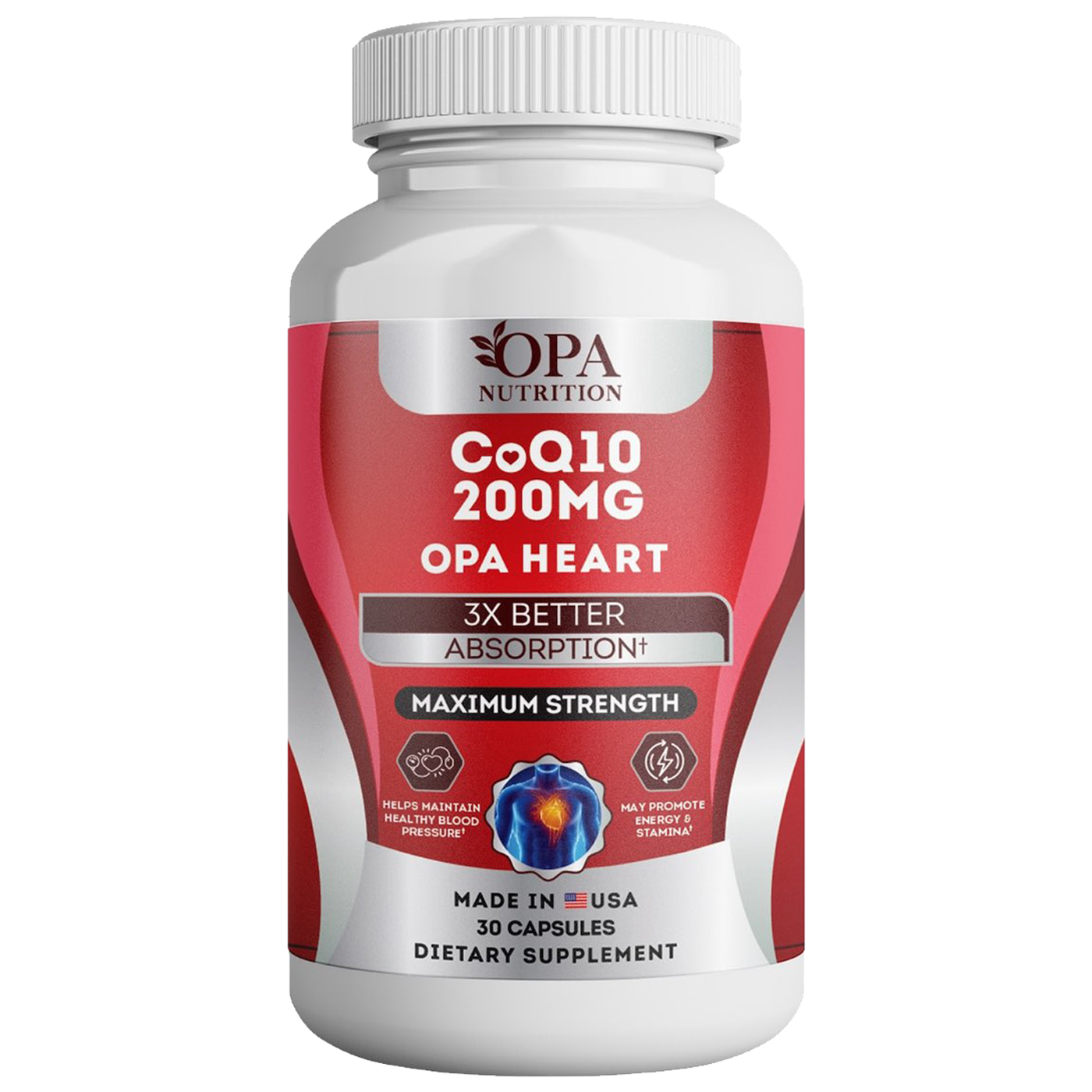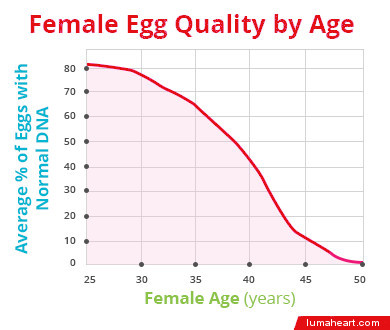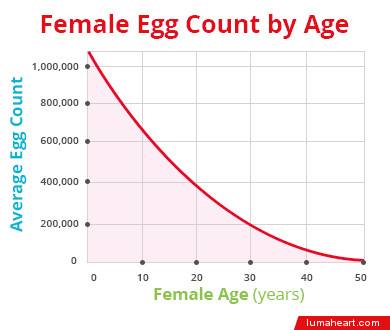Fertility can be a complex issue for women, especially as they approach and pass the age of 40. While many women may turn to fertility treatments or other medical interventions to improve their chances of conception, there are also many natural approaches that can support fertility and increase the chances of a healthy pregnancy. One of these approaches is to use the CoQ10 fertility over 40 supplements. CoQ10, or coenzyme Q10, is a naturally occurring antioxidant that plays a crucial role in energy production and cellular function.
In recent years, besides its noted benefits in heart health and energy production, there has been an increasing curiosity regarding is CoQ10 good for fibromyalgia. It's this versatility of CoQ10 that has piqued interest in both fertility and potential relief for fibromyalgia patients. Particularly for women over the age of 40, CoQ10 has gained popularity as a potential natural solution for improving fertility and egg quality.
In this blog post, we'll delve deep into the potential benefits of CoQ10 for fertility, and provide tips and strategies for boosting fertility naturally, regardless of age. Additionally, here are the top 10 benefits of CoQ10 if you're keen to delve further into its manifold advantages. Moreover, we'll discuss the possible side effects of CoQ10, ensuring you can make an informed decision if this supplement aligns with your health goals.

OPA Heart
The #1 CoQ10 for Heart Health
Signs of Bad Egg Quality
As women age, the quality of their eggs can decline, which can make it more difficult to conceive and carry a healthy pregnancy to term. Signs of poor egg quality may include irregular menstrual cycles, reduced ovarian reserve, and an increased risk of miscarriage. Women may also experience difficulty conceiving or require fertility treatments, such as IVF or donor eggs, in order to become pregnant.
While there is no surefire way to guarantee good egg quality, there are steps that women can take to support their reproductive health and improve their chances of conceiving. Maintaining a healthy diet and lifestyle, reducing stress, and taking supplements like CoQ10 and folic acid may help to support egg quality and optimize fertility. Additionally, speaking with a healthcare provider or fertility specialist can provide personalized information and guidance on optimizing fertility and improving egg quality based on individual health history and needs.
Egg Quality Age Chart

An egg quality age chart can be a helpful tool for women who are trying to conceive, as it can provide information on the relationship between age and fertility. As women age, the quality of their eggs can decline, which can make it more difficult to conceive and carry a healthy pregnancy to term. The egg quality age chart typically shows a decline in fertility after age 35, with a significant drop-off after age 40. However, it is important to remember that every woman's fertility journey is unique, and there are many factors that can impact fertility and egg quality beyond age alone. Women who are concerned about their fertility or egg quality should speak with a healthcare provider or fertility specialist, who can provide personalized information and guidance on optimizing fertility and improving chances of conception.
Egg Count Age Chart

A female egg count age chart, also known as an ovarian reserve test, can provide information on a woman's fertility potential by measuring the number and quality of her remaining eggs. This type of test can be particularly useful for women who are considering fertility treatments or who are trying to conceive and want to assess their chances of success. The egg count age chart typically shows a decline in ovarian reserve after age 35, with a significant drop-off after age 40. However, it is important to remember that every woman's fertility journey is unique, and there are many factors that can impact fertility and egg quality beyond age alone. Women who are concerned about their fertility or egg count should speak with a healthcare provider or fertility specialist, who can provide personalized information and guidance on optimizing fertility and improving chances of conception.
Does Egg Quality Vary Month on Month?
Egg quality can be influenced by a variety of factors, including age, lifestyle, and overall health. However, it is generally believed that egg quality does not vary significantly from month to month in healthy women. Women are born with a finite number of eggs, and each month, one of these eggs is selected for ovulation. While the quality of the selected egg can impact the chances of conception and a healthy pregnancy, it is not typically thought to vary significantly from one month to the next in the absence of underlying health issues or other factors that could impact fertility.
That said, it is important to note that every woman's fertility journey is unique, and factors like stress, illness, or changes in medication or lifestyle can impact overall reproductive health and the quality of eggs. Additionally, as women age, the quality and quantity of their eggs can decline, which can make it more difficult to conceive and carry a healthy pregnancy to term. Women who are concerned about their fertility or the quality of their eggs should speak with a healthcare provider or fertility specialist, who can provide personalized information and guidance on optimizing fertility and improving chances of conception.
Improve Egg Quality in 30 days Naturally
Improving egg quality is a common concern for women who are trying to conceive, and CoQ10 supplements have emerged as a potential natural solution. CoQ10, or coenzyme Q10, is a naturally occurring antioxidant that plays a crucial role in energy production and cellular function. Some research suggests that taking CoQ10 for fertility may help to improve egg quality and increase the chances of conception. Additionally, CoQ10 has been shown to have a positive impact on overall reproductive health, including supporting ovarian function and reducing the risk of age-related infertility.
While there is no guarantee that taking CoQ10 supplements will improve egg quality or fertility outcomes, many women have reported positive results from incorporating these supplements into their daily routine. However, it is important to speak with a healthcare provider or fertility specialist before adding any new supplements or medications to your routine, to ensure that they are safe and appropriate for you. Additionally, women who are trying to conceive should focus on maintaining a healthy diet and lifestyle, reducing stress, and working with their healthcare providers to optimize overall reproductive health and maximize their chances of conceiving.
Final Thoughts on CoQ10 Fertility over 40
In conclusion, fertility can be a complex issue, particularly for women over the age of 40. However, there are natural ways to support fertility and increase the chances of a healthy pregnancy. CoQ10 supplements have emerged as a potential solution for improving fertility and egg quality. By incorporating CoQ10 and other supplements into a daily routine, women can potentially improve their reproductive health and chances of conception. Additionally, maintaining a healthy diet and lifestyle, reducing stress, and speaking with a healthcare provider or fertility specialist can also provide personalized guidance on optimizing fertility and improving chances of conception. With the right approach and support, women can boost their fertility naturally and increase their chances of a healthy pregnancy.
Frequently Asked Questions
The recommended dosage of CoQ10 for fertility over 40 can vary based on individual health needs and other factors. However, many fertility specialists recommend a daily dose of 200-600mg of CoQ10 for women who are over 40 and trying to conceive. It is important to speak with a healthcare provider or fertility specialist before adding any new supplements or medications to your routine, to ensure that they are safe and appropriate for you. Additionally, women who are trying to conceive should focus on maintaining a healthy diet and lifestyle, reducing stress, and working with their healthcare providers to optimize overall reproductive health and maximize their chances of conceiving.
CoQ10 supplements have gained popularity as a potential natural solution for improving fertility and egg quality, particularly in women over the age of 40. However, the time it takes for CoQ10 to work for fertility can vary from person to person and depends on individual factors such as age, overall health, and dosage. While some women may see improvements in their fertility within a few weeks of taking CoQ10 supplements, others may take several months to notice any changes. It is important to speak with a healthcare provider or fertility specialist before adding CoQ10 supplements to your routine and to follow their guidance on dosage and timing.
Luma Heart 200mg CoQ10 is a CoQ10 supplement that may support fertility in women over 40. This supplement contains CoQ10, which plays a role in cellular energy production and reproductive health. Luma Heart 200mg CoQ10 is formulated to promote fertility and egg quality in women over 40. While Luma Heart 200mg CoQ10 may be a good choice for those seeking a natural way to support fertility, it is important to speak with a healthcare provider before taking any new supplements or making changes to your healthcare routine.
While getting pregnant can be more difficult for women over the age of 40, there are still steps you can take to increase your chances of conceiving. Maintaining a healthy diet and lifestyle, reducing stress, and taking prenatal vitamins can all help to optimize reproductive health and improve the chances of conception. Additionally, tracking your menstrual cycle and timing intercourse during your most fertile days can increase the likelihood of getting pregnant. If you have been trying to conceive for six months to a year without success, it may be time to speak with a healthcare provider or fertility specialist, who can provide personalized guidance and support on optimizing fertility and increasing the chances of a healthy pregnancy.
Increasing fertility in your 40s can be challenging, but there are several natural steps you can take to optimize your reproductive health. Maintaining a healthy diet and exercise routine, reducing stress, and avoiding toxins and environmental pollutants can help support fertility. Additionally, taking supplements like CoQ10, which can improve egg quality and overall reproductive function, may be helpful. It's also important to work closely with your healthcare provider or a fertility specialist to assess any underlying health conditions or potential fertility issues and develop a personalized plan for optimizing fertility.



